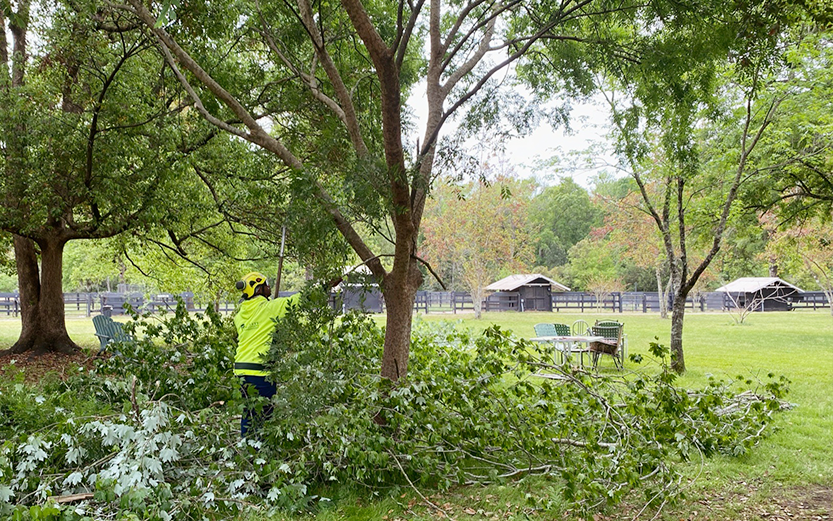
May 15, 2021
We want to give a huge shoutout and thank you to Bartlett Tree Experts – Charleston, SC!! They had a day of training and safety protocol, and Hallie Hill was fortunate enough to benefit from that training. We cannot emphasize enough how wonderful and professional all the workers were. They are a great company, and they are huge animal lovers! Thank you so much Bartlett Tree Experts! The sanctuary is looking wonderful and has been made safer thanks to your hard work!

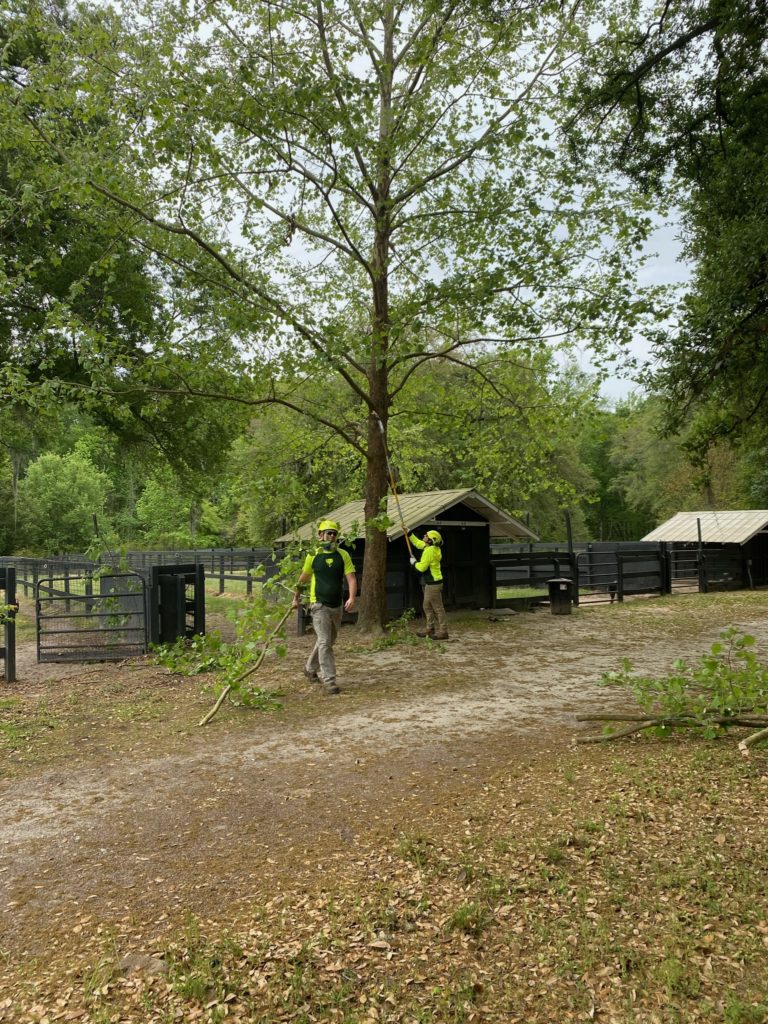
Bartlett Tree Experts Website
Bartlett Tree Experts Facebook
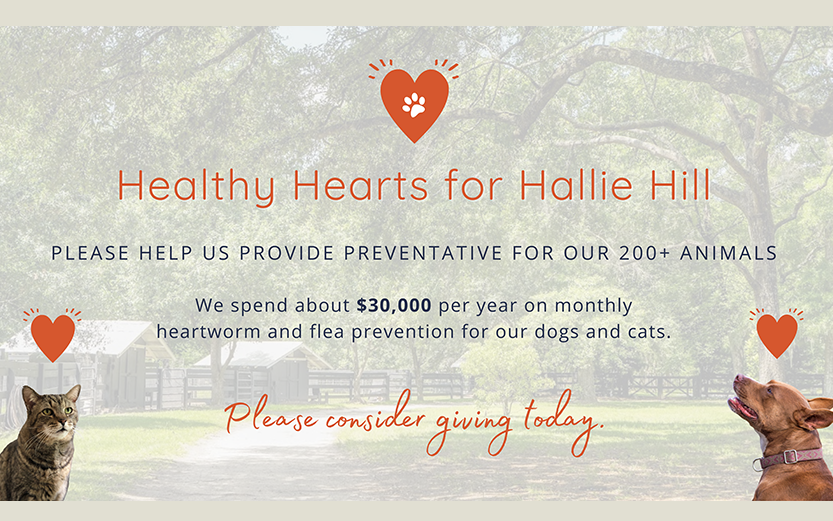
Apr 29, 2021
Please help us provide preventative for our 200+ animals
We spend about $30,000 per year on monthly heartworm and flea prevention for our dogs and cats.
YOU can help us by contributing to Healthy Hearts for Hallie Hill! All donations made go to our MAGIC (Medical And Geriatric Care) Fund and will be used to purchase preventative for our animals. Click here to give today.
🥉 “Heart of Bronze”: Donate 1 month of preventative for a dog or cat and you will be recognized in our Howler newsletter!
🥈 “Heart of Silver”: Donate 1 year of preventative for a dog or cat and you will be recognized in our Howler newsletter, and on social media!
🥇 “Heart of Gold”: Donate 1 year of preventative for 5 dogs or cats and you will not only be recognized in our Howler newsletter and social media – but you will also receive a private tour of the sanctuary!
About Heartworms
Many animals arrive at HHAS infected with heartworms. Treating heart worms is costly and time consuming. First, the dog is given a heartworm preventative that kills the immature heart worms (larvae). This not only prevents new adult heart worms, but it reduces the possibility of mosquitoes spreading the heart worms to other animals. Secondly, the dog is given an antibiotic twice daily for 30 days prior to the treatment. The antibiotic weakens the adult heart worms by killing a bacteria that lives inside their gut. Immiticide is a series of three injections that kill the adult heart worms and it requires that the dog be crated or otherwise kept quiet for eight consecutive weeks. We counsel adopters that heartworm prevention is simple and relatively inexpensive compared to treatment. Thanks to generous contributions, the residents of the sanctuary receive heartworm and flea prevention monthly.
– J. Middleton
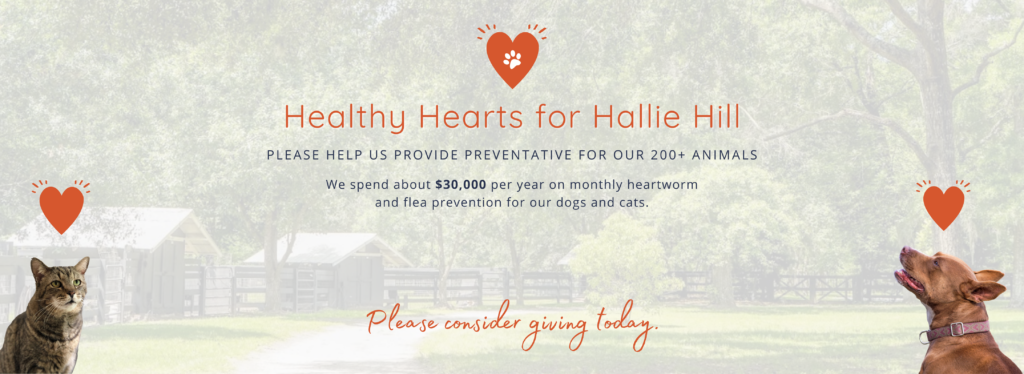
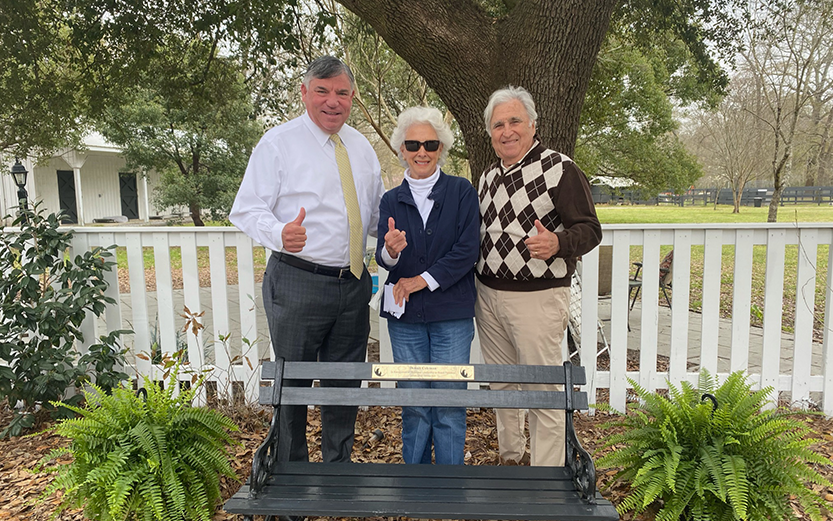
Apr 18, 2021
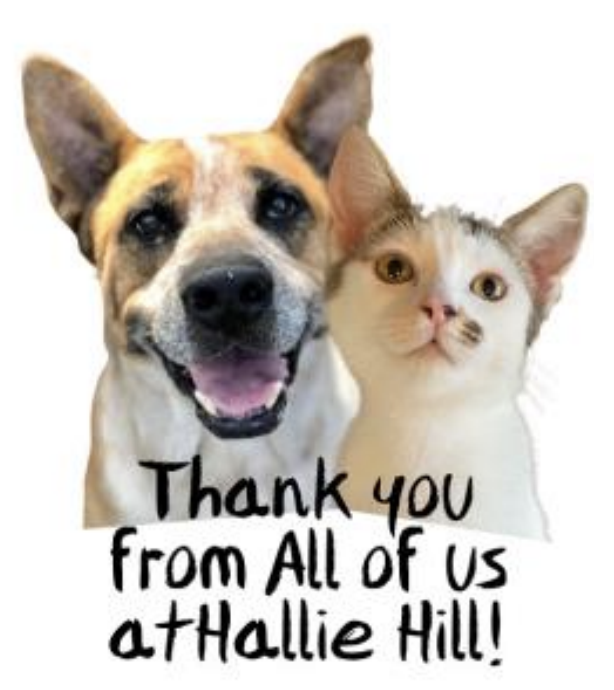
Hallie Hill honors Past President of the Board of Directors, Dennis Coleman, for his dedicated service to the Sanctuary. A bench was placed in his honor at the entrance to the Sanctuary. On March 16, 2021 the bench was dedicated in Mr. Coleman’s honor by Ms. Helen Bradham, founder of Hallie Hill Animal Sanctuary and Mr. Harvey Loew, current President of the Board of Directors.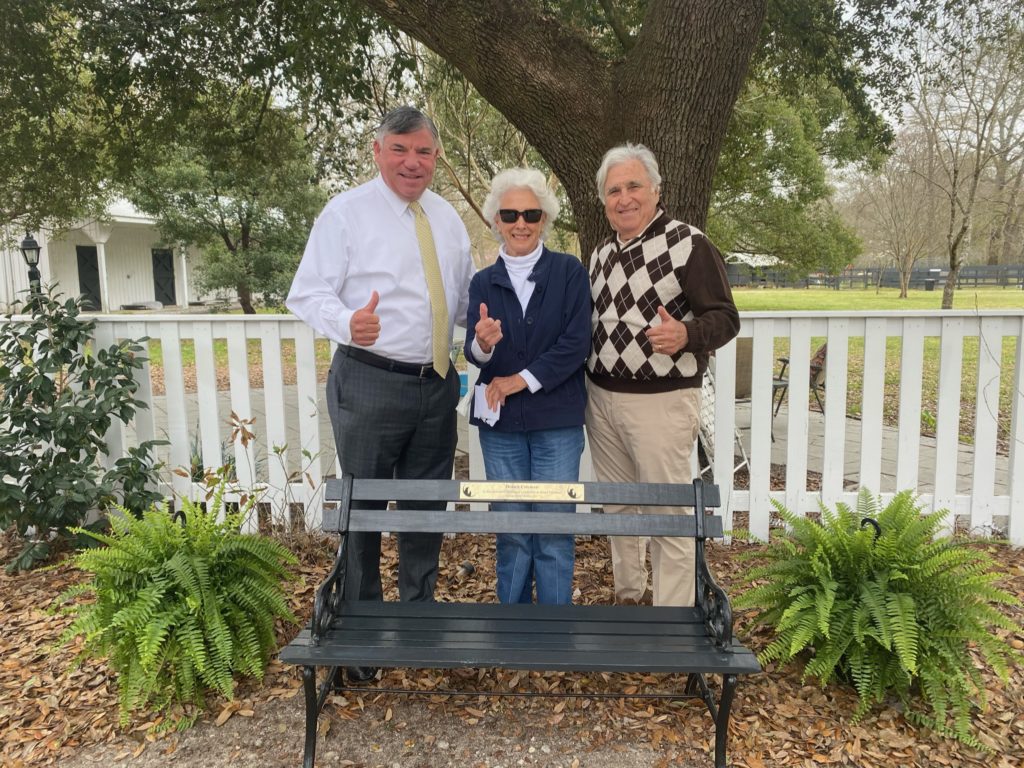

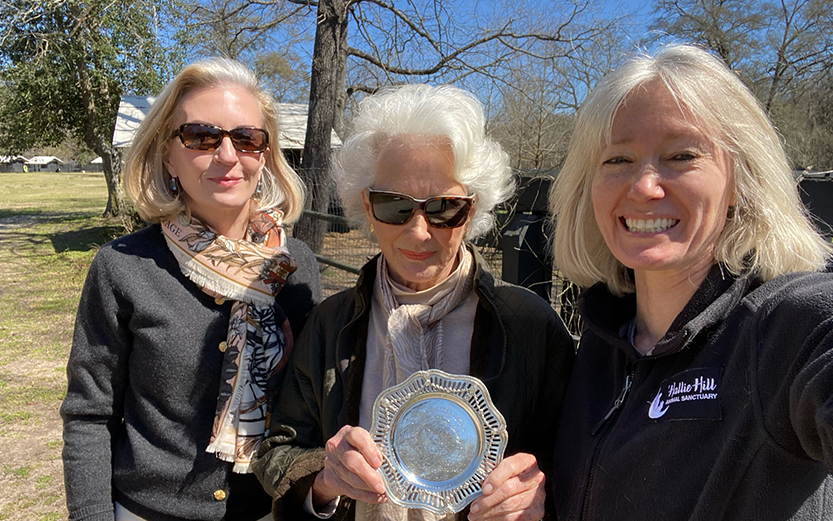
Apr 11, 2021
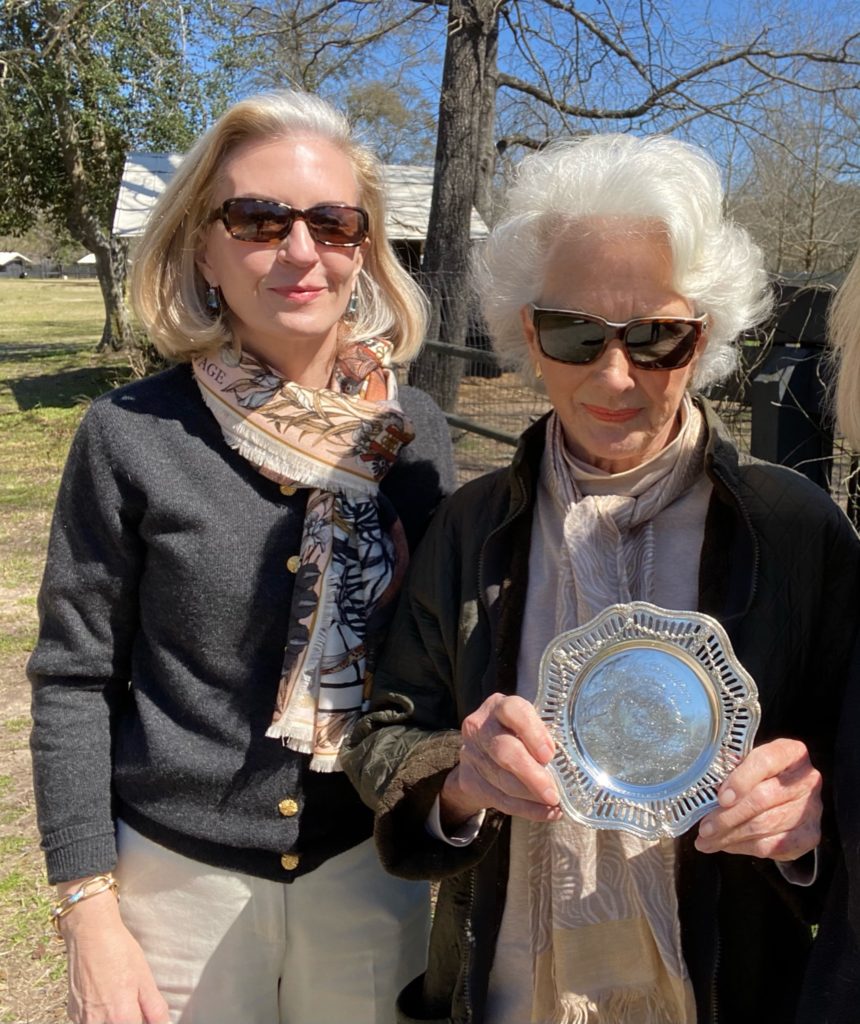
Elizabeth Bradham and Helen Bradham
We are thrilled to share that our founder, Helen Bradham, received Charleston Animal Society’s Elizabeth Bradham Humanitarian of the Year Award. Helen founded Hallie Hill over thirty years ago when dogs had been left as strays on the property. Given her tremendous heart and endless compassion, Helen provided respite, love and care to each animal that had no other place to call home. She took in the handful of dogs, cats (and horses) as they appeared… over time her efforts quickly grew into a beautiful facility filled with the many spacious grassy enclosures and cabins that can be seen at the sanctuary today. Thanks to Helen’s unwavering dedication to animals, Hallie Hill now provides sanctuary to hundreds of dogs and cats each year. Thank you Charleston Animal Society and Elizabeth for honoring Helen’s continued efforts to help animals in need.
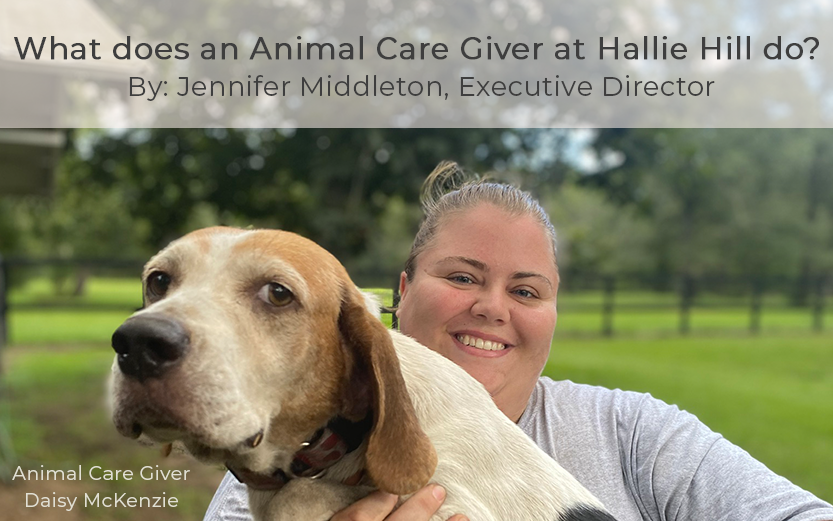
Mar 15, 2021
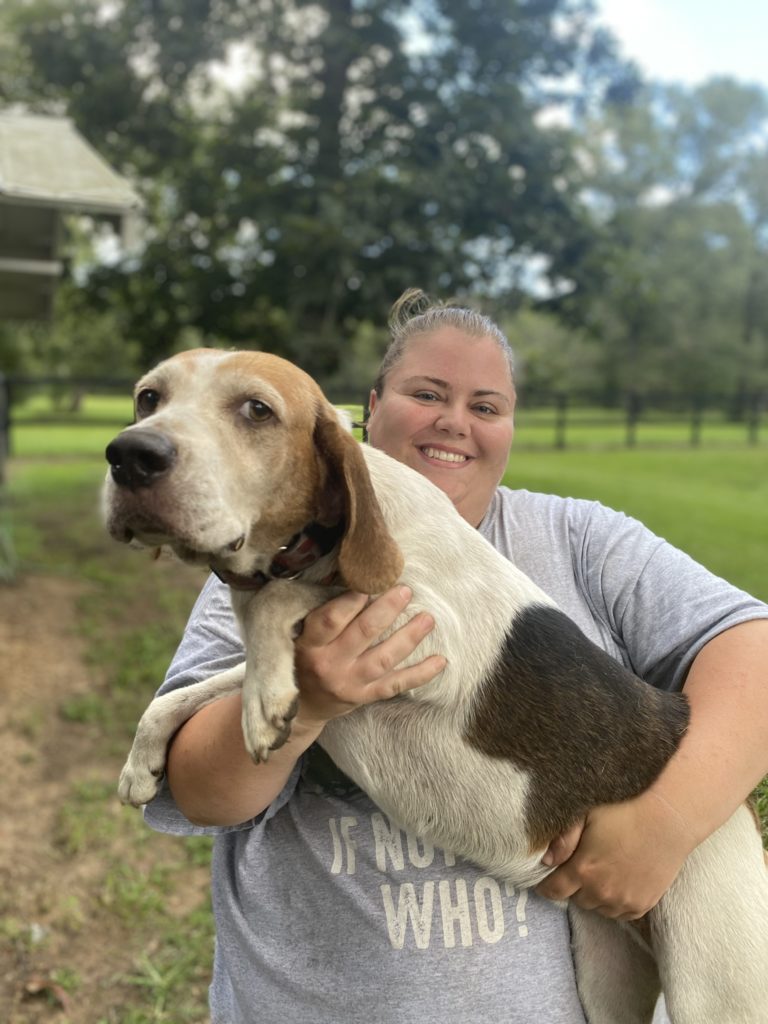
Daisy McKenzie with Buster
By: Jennifer Middleton, Executive Director
When animals first arrive, Animal Care Givers (ACGs) get busy making the animal comfortable and healthy. Sometimes the new intake need a bath to remove fleas, dewormer to remove parasites, or grooming to remove uncomfortable matts in his/her fur. All animals need to be weighed and have their vaccinations brought up to date. Many dogs and cats arrive with no prior veterinary care. Others may have vet records to be transferred and checked. Upon arrival, the dogs receive a Bordetella (kennel cough) and a distemper/parvo vaccine. Cats receive a FVRCP which is kind of like the feline equivalent to a distemper/parvo vaccine. The ACG will check the new arrival for a microchip and insert one if needed.
Next each dog (without a recent veterinary exam) has blood drawn to be tested for heart worms. And each cat has blood drawn to be tested for feline leukemia (FeLV) and feline immunodeficiency virus (FIV). The results of the tests are recorded in each animal’s file. Drawing blood from the animals is usually a two person job and on rare occasions the animal may need to be sedated at the veterinarian’s office for this simple procedure. ACGs also get fecal samples on animals to test for parasites.
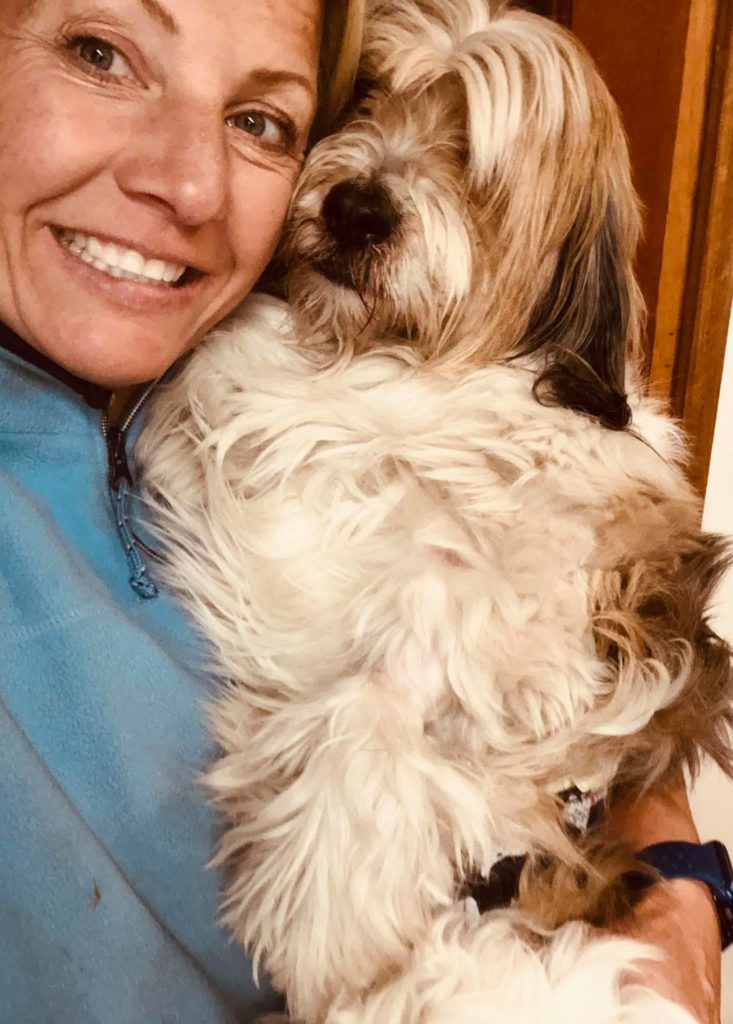
Daniela Schneider with Ike
Each animal is then scheduled to see the vet to be spayed/neutered and receive a rabies vaccine if needed. Any other concerns such as skin irritations, masses, lameness, eye or ear infections are also addressed at that time. Sometimes follow up visits at the specialty veterinarian are needed.
On a day-to-day basis at the sanctuary, the ACGs arrive early in the morning to feed the animals. They start with the animals in the bunkhouse preparing and distributing meals and any medications listed for specific animals on the medication log. A few water bowls that do not fill automatically are topped off and then it is off to the barn. Food and medication is distributed as quickly and efficiently as possible as the anticipation of breakfast creates anxiety among the dogs.
Once everyone in the barn is fed, the golf cart is loaded with dry food, canned food for medications, a few special meals for those with allergies and other special needs. Then the ACG drives the cart around to the outside enclosures delivering food to each dog and medications to those who need it. Each day we use over 40 pounds of high quality dog food and several cans of soft food.
Once breakfast is over, the feed cart is unloaded and the ACG is off to start other daily tasks, such as laundry, washing dirty food bowls, cleaning the bunkhouse, tack room and more.
There are usually a few small animals at HH. Currently, we have 2 rabbits that ACGs provide excellent care for by feeding, cleaning their cages, and grooming.
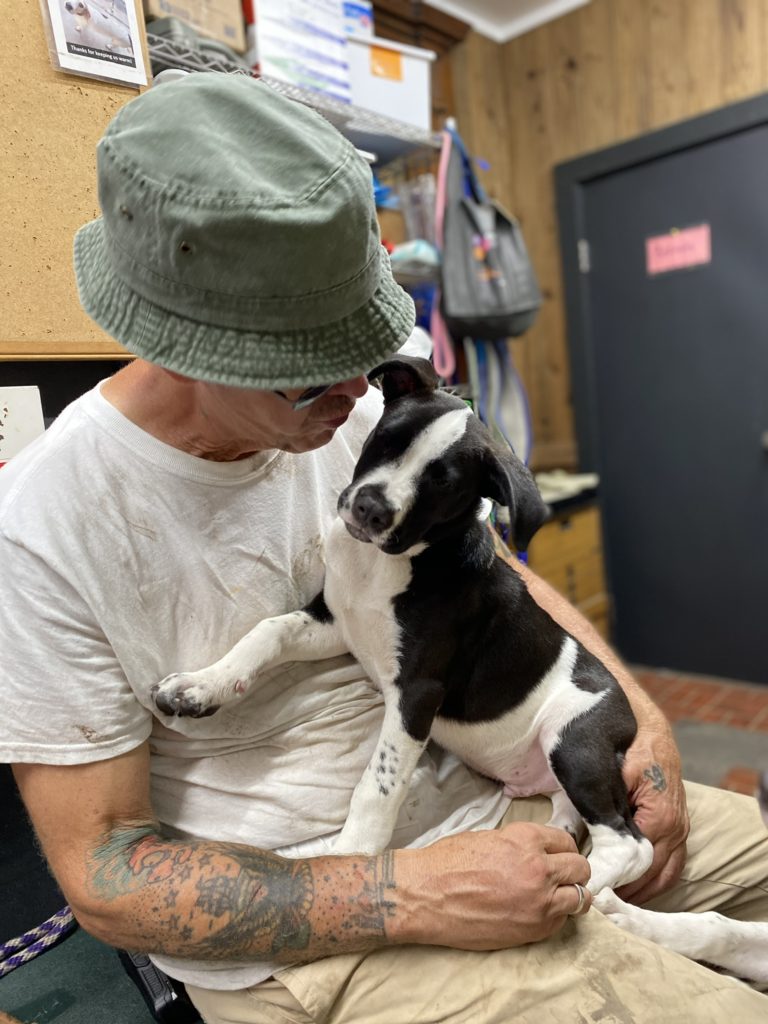
Josh Taber with Clark
Most days we are blessed with a hard-working crew of volunteers who serve as ACGs for the cats. They feed, clean litter boxes, clean water bowls and fountains, sweep floors, wipe down counters, change bedding, and most importantly give the cats affection. The staff will oversee that the catteries are cared for and the supplies are restocked. Then an ACG will drive out to attend to the feral cat population located just outside the main yard. This population of about thirty felines receive fresh water and food each day and they have a few litter boxes that must be cleaned.
ACGs are often on hand to put away purchased supplies as well as donations.
Another daily task of an ACG is mucking. Many volunteers have taken on this vital ACG role as they visit with the dogs. Each cat enclosure has an outside area that an ACG mucks weekly. Cleaning the solid waste makes the enclosure more sanitary and the large enclosures require a lot of walking! The small enclosures (like those behind the barn are attended to everyday.)
Introducing dogs to others is a job that takes more than one ACG at a time. Much thought and consideration is put into decisions on where to place dogs/cats. With dogs, ACGs consider their disposition and how it will blend with any potential partners. They must think about if the dog will dig, climb, run the fence or be food aggressive when choosing their placement.
Grooming is a task that keeps ACGs busy in any spare time. Trimming nails on 150 dogs is a constant challenge- especially since most of our animals do not appreciate pedicures. There are a few long-haired dogs and cats that require brushing and occasional de-matting. There are a few dogs with skin issues who require periodic medicated baths, especially during the summer. ACGs also work to clean and medicate many dirty or infected ears.
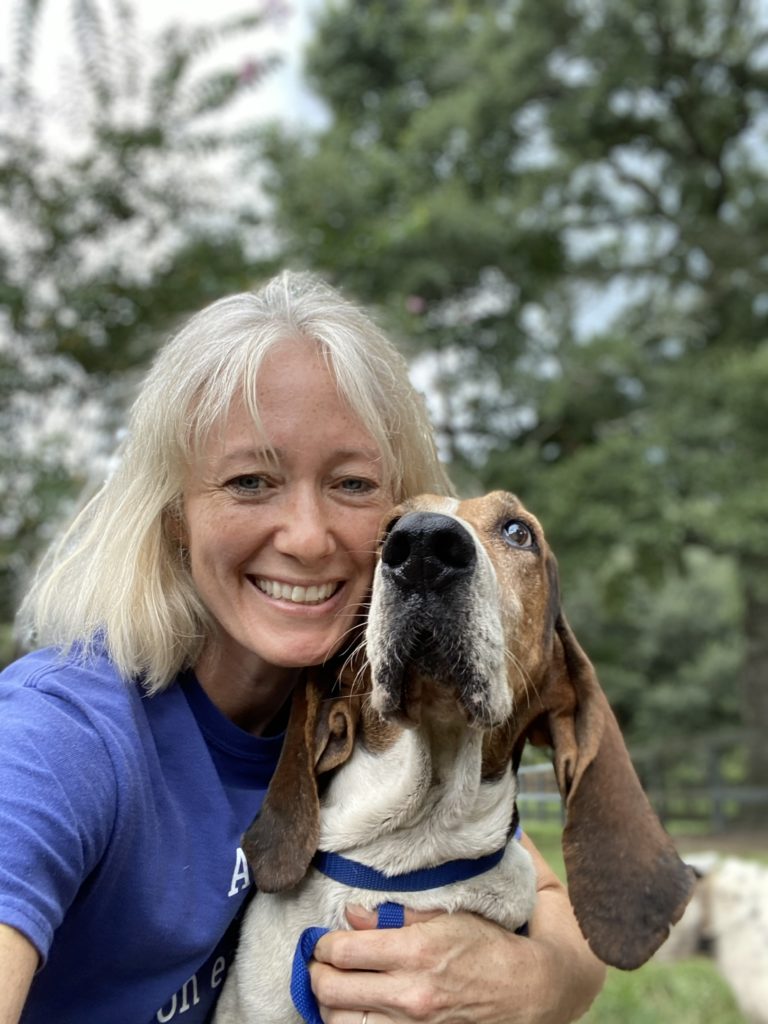
Jennifer Middleton with Bodean
In the afternoon, an ACG (sometimes a volunteer) will use a scrub brush with a long handle to walk to every dog enclosure to flush out each water bowl and ensure that it automatically refills with fresh water. At this time they also give out a treat to any well mannered dog greeting them at the fence. This task not only ensures the dogs have fresh, clean water, but allows us to check the location of each resident (sometimes they dig or climb into a neighbor’s yard) and the health of everyone. ACGs will make a note of any dog who does not have an appetite or presents some physical problem such as lameness.
As evening progresses, an ACG will start the feeding and the distribution of evening medications. In the winter, heat lamps will be turned on to give the residents a source of heat on cold nights. The dogs who will allow it, are fitted with jackets on very cold nights.
Being an ACG at the sanctuary is a job that never ends. No matter how hard or fast they work, there is ALWAYS more to do. They could finish mopping the bunkhouse, leave 30 minutes to sweep barn stalls and find that several small dogs had accidents all through the house they just cleaned. They work tirelessly and manage to have a cheerful attitude throughout the day. The ACGs at Hallie Hill are able to prioritize and are always flexible. The animals are blessed to have Daisy McKenzie, Daniela Schneider, Josh Taber and the many volunteers who have stepped up as ACGs at the sanctuary. It would not be such an incredible organization without their dedication!


















